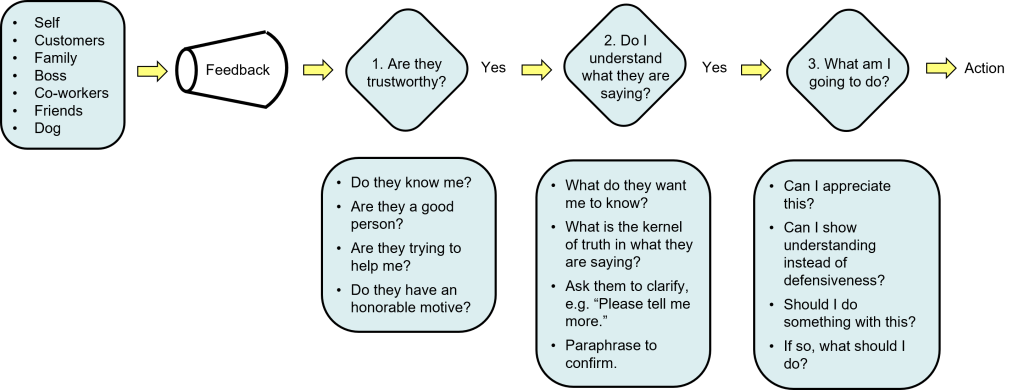
Growing up, especially through the teenage years, isn’t easy. Kids between 11-19 years old go through the process of learning to think for themselves, forming their core personality, dealing with hormonal changes, discovering emotions, and developing perspectives they will carry for years to come. Perhaps most formatively, they learn, rightly or wrongly, how to process feedback. They learn their best to deal with peer pressure and bullying. They learn how to interpret the influence of friends, family, teachers, coaches, and outsiders.
As adults, we know not everyone’s influence is well-intentioned. This becomes painfully obvious during the formative teenage years. During this time kids learn how hurtful other kids can be. They learn how misleading and unhelpful others’ advice can be. They experience the confusion of deciding what to do and how to respond. Compounding this, when they share their thoughts and feelings with trusted adults, they receive advice that seems impossible to follow. Adults don’t seem to understand the relational dynamics kids face. Adults don’t have to read the social media posts that bombard kids throughout the day and night.
If you have teenagers (or others) in your circle of influence who you want to help in this area, refer to the following conversation as you talk to them about how best to process the influence, feedback, and advice they receive:
_______________________________________________________________________________________________________________
If someone says you look nice, (e.g. pretty, handsome), how do you react to that? If someone says you are good at a sport (e.g. soccer, lacrosse), how do you react to that? What if someone says you’re not good looking? Not a good player? Not smart? Of if they compare you to others or say something hurtful to you, how should you react to that? Do you believe them?
Should we just listen to people when they say good things to us and ignore people when they say not-so-good things? That might make us feel better but what if someone says something we don’t like, but is actually helpful to us? What if someone suggests we do something we don’t want to do but it would be good for us to do? Should we listen to them? Some people give us feedback that is worth listening to and following, right?
Fortunately, we decide what to do with what others tell us. Good or bad, we decide how to interpret what others say. If someone says we are pretty or handsome, that doesn’t make us pretty or handsome. Why? Because we decide that. If someone says we are not smart, that doesn’t make us not smart. Why? Because we make that decision. If someone says we are not good at doing something, it might be true by their standard, but it’s not true unless we decide it is true by our standard.
Who decides what you think is right? Or wrong? You do. People can take away our things. We can’t always control that. We can get hurt and lose our ability to do something. We can’t always control that. But no one can control how we think and feel unless we let them. We decide how we think. We decide how we respond to others. We decide how we process what others say to us.
This is great news that we get to interpret what we hear from others ….. but this can be difficult if we don’t know how to do it.
Let’s talk about what to do when someone says something to you. If you are playing a sport at another school and some kid yells something unkind to you, do you believe them? Hopefully not. Why? Because they are mean. They don’t even know you. They are the problem, not you. If you want to feel bad, feel bad for them. Or better, be glad that you are not like them. When people are obviously being mean, their words can be hurtful, but they should be easier to ignore because they are just being mean, right? What do you think?
What if you overheard someone who knows you talking about you to someone else? Maybe they said “she is a terrible soccer player.” That can certainly be hurtful to hear, but after you calm down, you should be able to assess what they are saying and find whatever truth might be in it, right? What do you think?
What if someone says you are interesting? What does that mean? That is confusing, right? What do you do with that?
What if you are playing in a soccer game and your coach yells “move over”. That is also confusing, right? Move where? Then you try your best to figure out what they are saying.
When receiving input from others, there are three decisions to make:
- Should I listen to them?
- If so, what are they trying to say that is worth listening to?
- What should I do with what they are saying?
In the first step of deciding if you should listen to people, the most basic decision you make is whether or not you trust them. Here are a few questions to ask yourself in determining if you trust someone enough to listen to what they have to say:
- Do they know me?
- Do I know them?
- Are they a good person?
- Are they trying to help me?
- Is their goal honorable? For example, are they helping me learn something that would be good for me?
If someone is trustworthy and worth listening to, the second step is figuring out what they are saying. Most people don’t give feedback well. Sometimes it includes partial truths. Sometimes it is delivered with excess emotion. Sometimes it isn’t worded well. If what you hear isn’t clear, try these two principles to find the kernel of truth worth understanding:
- Ask them to clarify. For example, say “please tell me more.” Or “What is it that you really want me to know?”
- Paraphrase what you think they are intending to confirm you got it right. For example, say something like “so if I’m hearing you correctly, you want me to pass the ball to other players on the team rather than kick it at the goal myself.”
Lastly, once you understand whatever is worth understanding, the third step is deciding what to do. This includes how to respond to the other person. For example, you decide to respond with appreciation or defensiveness (the latter not recommended). Then you decide whether to ignore their input or do something with it. You decide if you should do it fully or partially. You decide if you should start now or later. Depending on what it is, there are other considerations as well such as who else to involve and what else should you learn before taking action. For me, I like to learn and continually strive to be the best I can be. So, if something makes sense to me and it makes me better, I figure out what I need to figure out and try to do it. What do you do?
Here is a diagram outlining the three decisions to make when receiving feedback:

PDF version of this article: https://alpinelink.com/docs/Three_Decisions_Teenagers_Should_Know.pdf.
